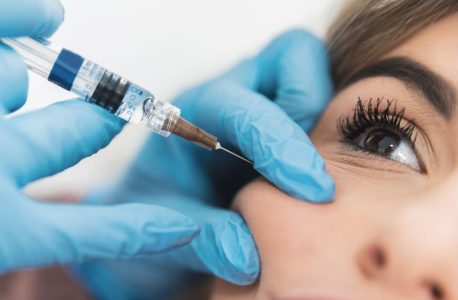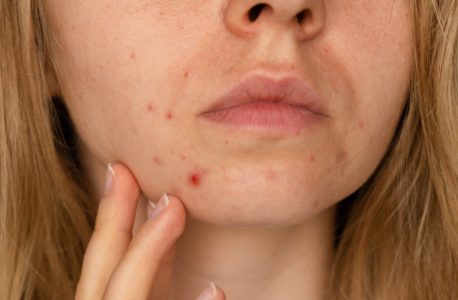What are eating behaviour disorders?
Eating behaviour disorders are characterized by a persistent disturbance in eating or food intake that results in changes in consumption or absorption of food, causing a significant deficit in physical health or psychosocial functioning (APA, 2013).
What kinds of disorders exist?
Disorders include pica, mericism, avoidant/restrictive eating disorder, anorexia nervosa, bulimia nervosa and compulsive eating disorder (APA, 2013).
In this article we will focus on anorexia nervosa, bulimia nervosa and binge eating disorder.
Anorexia Nervosa
Anorexia nervosa is essentially characterized by persistent restriction of energy consumption, intense fear of gaining weight and disturbance in the perception of one’s own weight or body shape (APA, 2013).
Regarding the age of onset of this disorder, it is known that it generally occurs during adolescence or young adulthood (APA, 2013).
Anorexia Nervosa stages
Anorexia nervosa has 4 levels of severity according to your body mass index (BMI):
- Mild (BMI ≥ 17 kg/m2);
- Moderate (BMI = 16 – 16.99 kg/m2);
- Severe (BMI = 15 – 15.99 kg/m2);
- Extreme (BMI < 15 kg/m2) (APA, 2013).
Anorexia Nervosa types
This disorder can be classified into two types: the restrictive type and the binge/purging type.
The restrictive type is when in the last three months the individual has not resorted to episodes of binge eating or recurrent purgative behaviours (inducing vomiting, misuse of laxatives, diuretics or enemas). Only resort has been to dieting, fasting, and/or excessive physical exercise.
The binge eating/purging type is when during the last three months, the individual resorted to episodes of binge eating or recurrent purging behaviours (inducing vomiting or misuse of laxatives, diuretics or enemas) (APA, 2013).
Anorexia Nervosa symptoms and consequences
Anorexia nervosa may be associated with depressive symptoms, social isolation, irritability, insomnia, decreased sexual desire and obsessive behaviours. Individuals with this disorder may also demonstrate a concern about eating in public, feel the need to control the environment in which they live, have inflexible thinking and restrict emotional expression (APA, 2013).
Due to severe and chronic dietary restrictions, body weight can regularly drops to levels that are incompatible with health. One of the first symptoms of malnutrition is thin hair, dry skin and the appearance of cavities. The cardiovascular system is impacted, as well as the endocrine and metabolic system, resulting in situations of hypoglycemia, hyponatremia, hypokalemia, changes in thyroid function and high cortisol levels. Changes in intestinal motility (constipation), atrophy of the intestinal mucosa, liver and kidney changes are also observed. In addition to these, the development of anaemia, leukopenia and thrombocytopenia is common. With low weight, changes in the reproductive system such as amenorrhea are common.
Finally, changes are verified at a neurological level, some of which can be corrected when regulating nutritional status (Treasure. J, Duarte. T, Schmidt. U. (2020) Eating disorders. Lancet. 395:899-911).
Nervous Bulimia
Bulimia nervosa is characterized by recurrent episodes of binge eating with recurrent compensatory behaviours to avoid weight gain (induction of vomiting, misuse of laxatives, diuretics or other medications; excessive physical exercise) and self-evaluation unduly influenced by weight and body shape (APA, 2013).
Nervous Bulimia stages
Bulimia Nervosa has 4 levels of severity according to the frequency of inappropriate compensatory behaviours:
- Mild (on average, 1 to 3 episodes of inappropriate compensatory behaviours per week);
- Moderate (on average, 4 to 7 episodes of inappropriate compensatory behaviours per week);
- Severe (on average, 8 to 13 episodes of inappropriate compensatory behaviours per week);
- Extreme (14 or more episodes of inappropriate compensatory behaviours per week)
Nervous Bulimia symptoms and consequences
Like anorexia nervosa, bulimia has physical consequences, but they are usually less serious. Due to the recurrent induction of vomiting, an increase in dental corrosion is common, as is the appearance of gastric ulcers. At the gastrointestinal level, there is an even greater tendency for the development of pancreatitis, constipation and gastric perforations. It should also be noted that the occurrence of electrolyte imbalances, decreased renal function, complications related to the cardiovascular system is common (Treasure. J, Duarte. T, Schmidt. U. (2020) Eating disorders. Lancet. 395:899-911) .
Binge Eating
Binge eating usually happens in secret and continues until the person feels uncomfortable. It usually occurs during or after a weight loss diet. Individuals try to eat the foods they tend to avoid (APA, 2013).
Binge eating disorder is characterized by recurrent episodes of binge eating over a short period of time, feeling of loss of control over eating during the episode, rapid eating, eating until feeling unpleasantly full; eating large amounts of food despite not feeling hungry, eating alone because you feel embarrassed by your voracity, feeling depressed or with great guilt after the epsiodes (APA, 2013).
This disorder usually begins in late adolescence or early adulthood. However, experiencing several stressful life events may anticipate its onset (APA, 2013).
Binge Eating stages
Compulsive, or binge, eating has 4 levels of severity according to the frequency of episodes:
- Mild (1 to 3 episodes of binge eating per week);
- Moderate (4 to 7 episodes of binge eating per week);
- Severe (8 to 13 episodes of binge eating per week);
- Extreme (14 or more episodes of binge eating per week) (APA, 2013).
Causes for binge eating
Regarding the causes that may be the origin of compulsive eating, we can highlight: negative feelings associated with body weight, body shape and food, negative affectivity, stressful interpersonal events and dietary restriction (APA, 2013).
In all eating behaviour disorders, nutritional dysregulations can occur due to restrictive and/or compensatory patterns, the same being true in cases of anorexia and/or bulimia.
The most common vitamin and mineral deficiencies in this type of pathology are: calcium, phosphorus, iron, vitamin A, vitamin B1, vitamin B9, vitamin B12, vitamin C and vitamin D (Diaz-Marsá. M, Alberdi-Páramo. I, Niell -Galmés. L. 2017. Nutritional supplements in eating disorders. Actaspsiquiatria. 26-36).
The role of the nutritionist is essential to identify which nutritional deficits are present in each case and outline a dietary strategy, when possible, or appropriate supplementation at each time. However, there are currently studies that advise, in addition to supplementing the deficient nutrients, the use of omega-3 and tryptophan during the recovery period in order to assist in good brain function (Diaz-Marsá. M, Alberdi-Páramo. I, Niell-Galmés. L. 2017. Nutritional supplements in eating disorders. Actaspsiquiatria. 26-36).
It should be noted that during nutrition consultations in this context, the nutritionist respects the patient’s rhythm by agreeing between consultations on small objectives to be achieved in terms of food so that the patient can recover an adequate nutritional status.
Regarding the treatment of eating behaviour disorders, it is important to highlight the need for it to be carried out by a multidisciplinary team that includes a psychologist, a nutritionist and a psychiatrist.
The psychologist is available to assist and clarify the construction of thought, the identification of possible triggers that originate episodes of binge eating, the acquisition of tools to reduce them, among others. Psychological support allows the expansion of the individual’s self-knowledge, their behaviours, emotions and actions. Its assumptions are based on psychological well-being, the promotion of mental health, the reduction of suffering and the improvement of quality of life.
Schedule an appointment
Schedule an appointment with the Living Clinic team to obtain a correct diagnosis and we can help you overcome any eating disorder.
Professionals

Carolina holds a degree in Nutritional Health Sciences from the School of Biotechnology of the Universidade Católica from Portugal.
Post-graduation in Pediatric Nutrition by the School of Biotechnology of the Universidade Católica from Portugal.
Certifications in Orthomolecular Nutrition and Psychoneuroimmunology from EMAC and Functional Nutrition from Nutriscience. Currently Carolina attends the Mentorship of Dra. Daniela Seabra on Functional Nutrition and the Nutrition Coaching Certification with Dr. Joana Carvalho Costa.
She works in several areas of nutrition, including weight loss and gastrointestinal health.

Dr. Madalena Iglésias holds a Master’s in Clinical and Health Psychology from Universidade Católica Portuguesa.
Performs Community Service at the Asas de Ramalde Institution (children from 2 to 5 years old).
Curricular internship at Hospital Nossa Senhora da Conceição de Valongo (HNSC) in the area of mourning and mental health.
Curricular internship at Centro Hospitalar São João (CHSJ) in the area of palliative care.
International internship at Universidad San Pablo (CEU) in Madrid in the area of psychocardiology, clinical neuropsychology and research.
Professional internship for the Portuguese Psychology Association, at the ENT Clinic Dr. Eurico de Almeida, in the area of otorhinolaryngology and psychotherapeutic intervention.
Currently practices psychology at Living Clinic (license #26237).
Main interests are healthy eating, functional training, padel practice, psychology and nutrition podcasts, travel, photography and dancing.
Schedule an appointment
- Do you want to know more information about a treatment?
- Do you want to know more about Living Clinic?
- Do you want our team’s opinion?
- Do you want to make an appointment?






